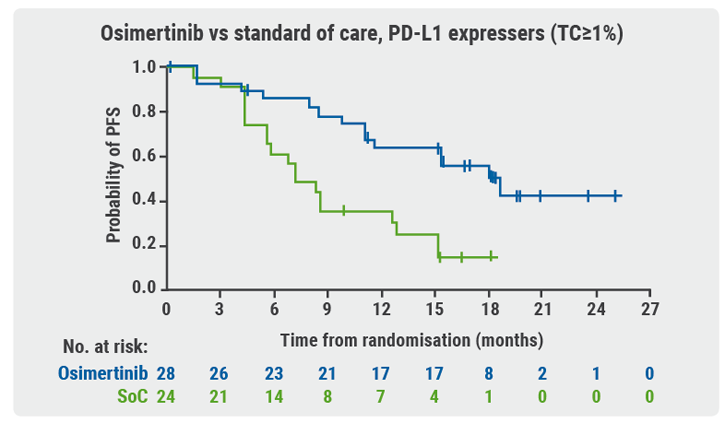Immunotherapy has revolutionised the treatment landscape for several types of cancer, but immunotherapeutic protocols are frequently accompanied by irAEs. Thus, there is an urgent need to discover biomarkers that can be used to predict disease course and response to treatment. Researchers have speculated that the activation of T-cell activity elicited by ICIs may result in a loss of immune tolerance in various organs, leading to irAEs.
Prof. Kan Wu (Zhejiang University School of Medicine, China) and colleagues sought to determine the association between baseline subsets of lymphocytes and irAEs and clinical outcomes (i.e. progression-free survival [PFS] and overall survival [OS]) in 109 patients with advanced NSCLC who had been treated with ICIs at any point. Retrospective analysis showed that 55 (50.5%) patients had experienced at least 1 type of irAE, and 38 (34.9%) had experienced multiple irAEs. Severe irAEs had occurred in 16 (14.7%) patients.
Univariate and multivariate regression models evaluated predictive factors of irAEs, and the Kaplan-Meier method was used to evaluate PFS and OS. Cox-regression analyses then assessed the prognostic effects of CD8+ T cells on PFS and OS. These analyses revealed that the incidence of irAEs was higher and PFS and OS were longer in the group with high counts of CD8+ lymphocytes than in the group with low counts of CD8+ lymphocytes.
The investigators concluded that in patients with advanced NSCLC who receive ICI therapy, baseline peripheral blood CD8+ T-cells may be useful to predict irAEs as well as clinical outcomes such as PFS and OS. These findings require further research for validation.
- Wu K. Peripheral CD8+ T Cells predicts immune-related adverse events and survival in advanced non-small cell lung cancer treated with immunotherapy. MA 09.03, WCLC 2021, 8–14 September.
Copyright ©2021 Medicom Medical Publishers
Posted on
Previous Article
« Genomic profiling of NSCLC may be predictive of immunotherapy response Next Article
Support for adjuvant pembrolizumab in earlier-stage melanoma »
« Genomic profiling of NSCLC may be predictive of immunotherapy response Next Article
Support for adjuvant pembrolizumab in earlier-stage melanoma »
Table of Contents: WCLC 2021
Featured articles
Atezolizumab promising for treating NSCLC brain metastases
Novel Therapy Approaches
Atezolizumab promising for treating NSCLC brain metastases
Interim results of nivolumab + rucaparib in SCLC
Pembrolizumab shows potential in TKI-resistant EGFR+ NSCLC, not ALK+
Real-world data shows inferior survival compared with IMpower150 results
NSCLC metastases also benefit from nivolumab + ipilimumab + chemo
Trial explores potential benefit of adding atezolizumab to usual care for mesothelioma
COVID-19
COVID-19 sees decreased lung cancer diagnoses and use of support services in US
Experiences of lung cancer patients during COVID-19: survey finds room for improvement
Evidence-Based Advocacy
GLCC survey: Increased demand for patient-support services during COVID-19 pandemic
Lung Cancer Europe patient survey identifies gaps in lung cancer care
Discrepancies and lack of guideline adherence in EGFR+ NSCLC treatment
Response Predictors
Baseline CD8+ T-cells predict NSCLC immunotherapy safety
Genomic profiling of NSCLC may be predictive of immunotherapy response
New preoperative classification scheme proposed for oligometastatic NSCLC
Prognostic factors in immunotherapy for advanced lung cancer
Related Articles
November 21, 2018
Combination therapies: Where are we in 2018?

© 2024 Medicom Medical Publishers. All rights reserved. Terms and Conditions | Privacy Policy
HEAD OFFICE
Laarderhoogtweg 25
1101 EB Amsterdam
The Netherlands
T: +31 85 4012 560
E: publishers@medicom-publishers.com

